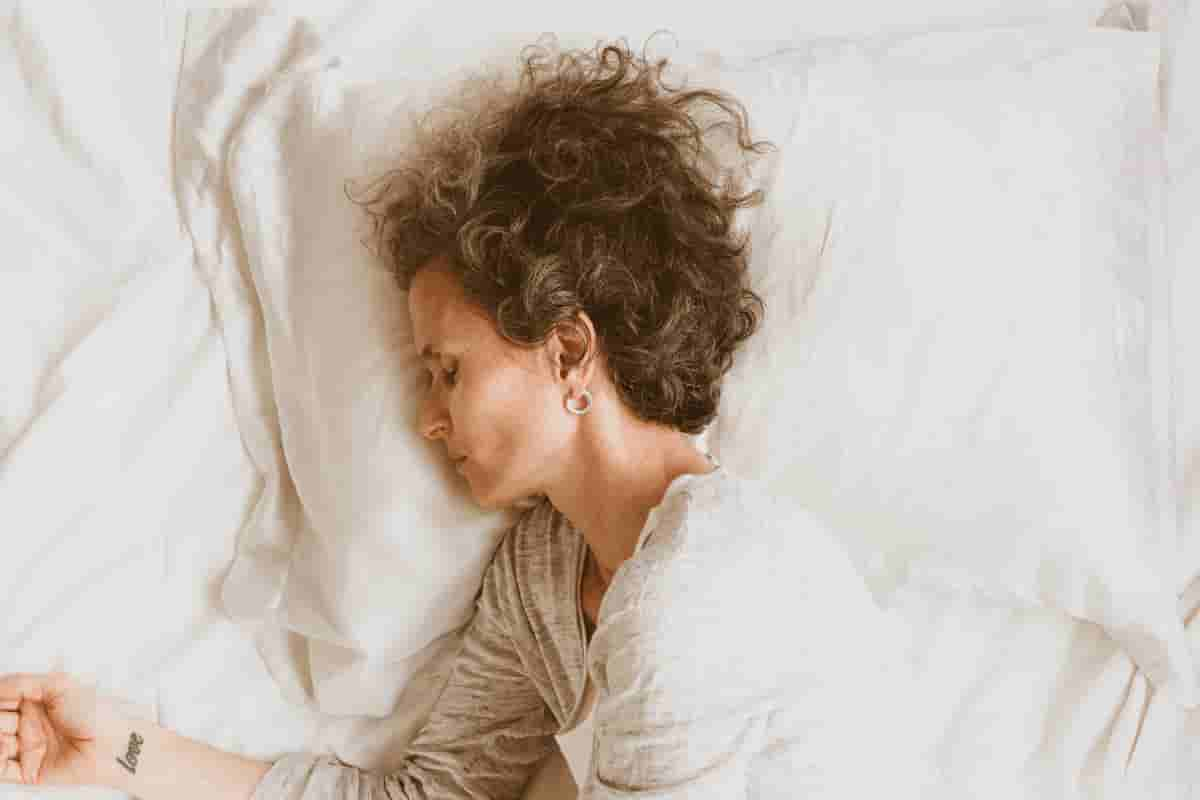Sleep Apnea Risk Climbs After Menopause

Sleep: that necessary part of life that you just can’t seem to get enough of. Trouble falling asleep and staying asleep usually starts in perimenopause, but can also be a lifelong struggle for many people.
Sleep troubles can also worsen after midlife due to a breathing disorder called sleep apnea. Sleep apnea is a potentially serious sleep disorder in which breathing repeatedly stops and starts. The condition is underdiagnosed in women, and many don’t know they are at risk.
The Sleep Apnea – Menopause Connection
Obstructive sleep apnea is the most common type of sleep apnea. It is characterized by episodes of hypoxia (lack of oxygen) while you are sleeping and higher rates of cardiovascular illness.
Other symptoms include:
- Loud snoring
- Gasping for air during sleep
- Waking up with a dry mouth
- Morning headache
- Difficulty staying asleep
- Excessive daytime sleepiness
- Difficulty paying attention while awake
- Irritability
- Joint pain.
While obstructive sleep apnea more commonly affects men, postmenopausal women can absoultely develop the condition.
Three large epidemiologic studies have confirmed that women’s obstructive sleep apnea rates increase after menopause. In fact, postmenopausal women are three times more likely to develop sleep apnea than premenopausal women.
What Causes Obstructive Sleep Apnea?
While other sleep conditions affect postmenopausal women (like insomnia, restless leg syndrome, and nighttime hot flashes), 46 to 67% are reported to suffer from obstructive sleep apnea.
Middle-aged women who report severe vasomotor symptoms may be at a higher risk of developing sleep apnea.
Postmenopausal changes in sex hormones and body weight are thought to play a role in developing sleep apnea. Estrogen and progesterone help maintain the integrity of your airway. When these two hormones drop significantly after menopause, you could be at risk of obstructive sleep apnea.
Interestingly, while the timing of natural menopause onset does not seem to play a role in developing sleep apnea, surgical menopause does. The surgical removal of ovaries in premenopausal women causes a sudden and drastic drop in sex hormones. This rapid decline is associated with a 26% higher risk of obstructive sleep apnea. This is not the case with natural early menopause, as sex hormones drop at a more gradual rate.
Sleep Apnea Affects More Than Sleep
The intermittent moments of oxygen deprivation associated with obstructive sleep apnea will, obviously, cause sleep troubles as you repeatedly stop breathing while you try to snooze. Women with sleep apnea get less restful sleep, which can cause more daytime tiredness and fatigue.
However, sleep apnea can cause more severe issues than just a bad night of sleep. Obstructive sleep apnea can cause health issues including increased risks of coronary heart disease, high blood pressure, heart failure, heart attacks, and stroke. These increased risks are due to changes in oxygen levels that can put stress on your heart.
An obstructive sleep apnea diagnosis may also lead to a type 2 diabetes diagnosis. Daytime sleepiness caused by sleep apnea is thought to change insulin resistance and potentially lead to type 2 diabetes. Unfortunately, like obstructive sleep apnea, diabetes is associated with a higher risk of heart disease.
But it doesn’t stop there. Obstructive sleep apnea has also been associated with a higher prevalence of metabolic syndrome, marked by several simultaneous health issues including high blood pressure, excess body fat, and high cholesterol. Obstructive sleep apnea can even lead to non-alcoholic fatty liver disease, a precursor to liver scarring and potential liver failure.
Preventing and Treating Sleep Apnea
Fortunately, postmenopausal women can take steps to either treat obstructive sleep apnea or prevent it altogether.
As previously mentioned, the drop in sex hormones after menopause may contribute to the development of obstructive sleep apnea. Research shows that women on menopausal hormone therapy (MHT) are half as likely to develop sleep apnea when compared to those not on MHT.
Importantly, losing weight and increasing your physical activity can reduce sleep apnea. Other treatment options include avoiding sleeping on your back, using a continuous positive airway pressure (CPAP) machine during sleep, using a dental appliance, and in some cases, having surgery.
Taking care of your physical and mental health can do wonders for your sleep overall. Experts recommend avoiding sleep disruptors, including caffeine, alcohol, smoking, and a poor diet. These disruptors and others may lead to insomnia and eventual sleep apnea issues.
Implementing healthy sleep hygiene habits is another fundamental step for anyone managing sleep challenges, including sleep apnea.
The Bottom Line On Sleep Apnea
While untreated sleep apnea can cause serious health issues, it is possible to prevent or treat the condition. If you suspect you may have sleep apnea, talk to your healthcare clinician about getting a referral to a sleep specialist. In most cases, you can be tested in the comfort of your own home. You’ll get peace of mind and a plan to improve your sleep and health.
Sign up for more unique women’s health content
By submitting this form, you agree to the Lisa Health Privacy Policy and Terms of Use


